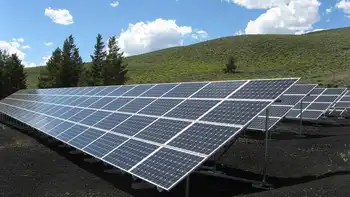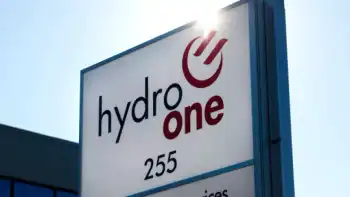African sun now powers study time
By Reuters
Substation Relay Protection Training
Our customized live online or in‑person group training can be delivered to your staff at your location.

- Live Online
- 12 hours Instructor-led
- Group Training Available
The launch of the Lighting Africa program (www.lightingafrica.org) by the two organizations this year has made it possible for Cecile to swap kerosene lamps for a solar-powered LED lantern.
That means she and a thousand other households in the town of Dedougou - which lies more than 200 km (124 miles) west of the capital Ouagadougou - can extend hours of study, reading or leisure without cutting back on other things.
Cecile lives in the world's second poorest country, where the choice to keep a light on at night means sacrificing resources for necessities such as food, heat, power and shelter.
The LED lights consume almost no power, and can keep shining all night if required. That should mean a more productive, better educated, wealthier population - a virtuous circle of reduced energy use and increased economic activity.
Cecile, 23, is in her final year of teaching studies at the University of Ouagadougou and shares a single room with another student in a three-apartment building.
"There is no electricity, and the drinking water is from the local fountain," she told me in French when we spoke on a mobile phone lent her by a friend.
Her only power is from the solar panel built into her lantern, which she bought for a subsidized price of $20.
Lighting Africa is a $12 million project which intends to bring light to the poorest regions across sub-Saharan Africa. The program works with the lighting industry to develop clean, affordable lighting and energy solutions for millions without access to electric grids.
Its aim is to accelerate the market and to develop education programs that inform off-grid populations currently dependent on costly, inefficient and hazardous fuel-based lighting about modern alternatives.
Cecile used to spend $3-4 a month on kerosene for her lamp. That is a large proportion of her earnings - like 70 percent of the population she lives on less than $2 a day.
"I can work later at night - its good for my studies; I can read a book," said Cecile.
In the weeks since buying her lantern she has managed to read four books including Madame Bovary by Gustave Flaubert and Emile Zola's Germinal.
She is among the most learned in a society which has the world's lowest literacy rate, according to a 2007 UN Human Development Report. When she graduates next year she will teach in a local Junior school.
She makes ends meet by holiday jobs as a cleaner and an IT trainer. To earn her daily ration of cornmeal she does shifts from May to September in a corn field.
Her solar lantern is made and distributed by CB Energie which won an open competition to be awarded the contract.
"We have just started to make these lanterns in Burkina Faso and sold about 3,000 so far," said Arnaud Chabanne a French engineer who founded the company.
The lanterns are designed to look like the kerosene ones they are replacing in order to increase adoption among the population. Each has a small solar panel on the top and costs an average $30, although some cost $100, depending on the size of the battery and the number of LED lights it contains.
Because of the large number of sunlight hours in Burkina Faso, the lamps can be relied on to work whenever needed. The battery life is 2-4 years, and can be replaced once they lose their storage capacity. The LED lights last 5-10 years.
Cecile had tried another solar lantern before she was given one by CB Energie, but "it did not last long each night' she said.
CB Energie has distributed the lanterns to about seven percent of the Dedougou area's 15,000 households, and will continue until every needy household has one.
"Petrol is expensive," said Chabanne, "so they can take this money for other things like food, or medicine."
Although it is barely out of its trial period the project, Chabanne said there are signs the project is a boon for the population in areas other than household savings and education. "There are fewer people reporting eye problems to the local hospital."











